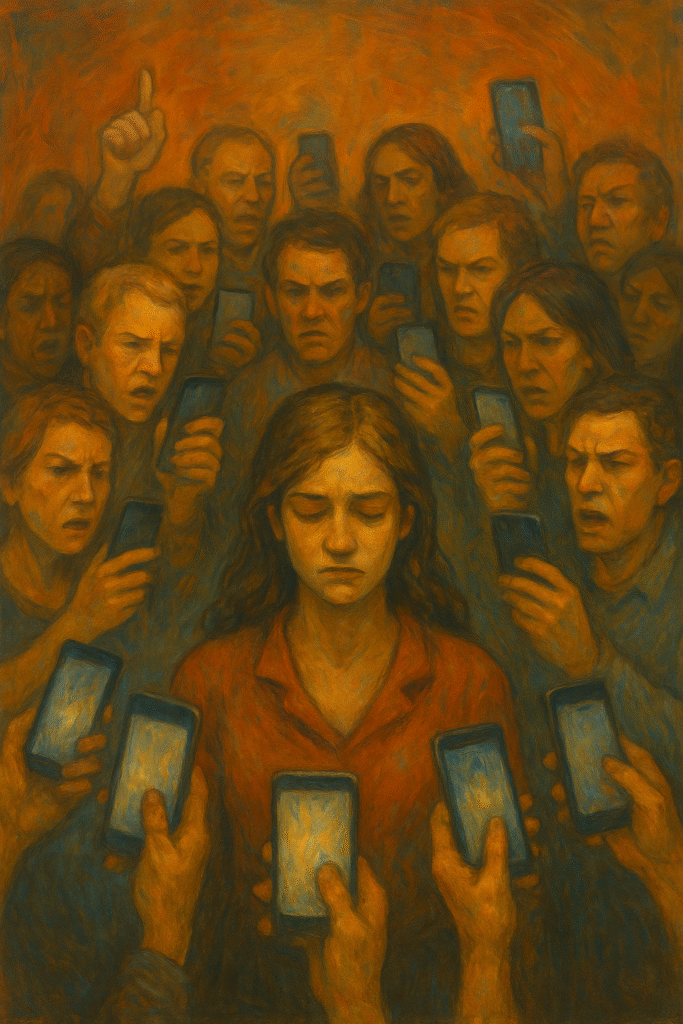Understanding Cancel Culture
Cancel culture is the public practice of calling out and boycotting individuals, often celebrities or influencers, for offensive behaviors or statements. It aims to foster accountability and promote social justice. However, it can also devolve into mob mentality, overshadowing nuanced dialogue. Critics argue this can silence dissenting views, while supporters see it as a necessary tool for tackling hate speech and discrimination.
—
The Role of Cancel Culture in Social Justice
Cancel culture has significantly impacted social justice movements by amplifying marginalized voices through platforms like Twitter and Instagram. These social media networks allow collective action against systemic issues such as racism and LGBTQ+ rights, intertwining cancel culture with online activism. This digital vigilance seeks accountability but can also lead to polarizing debates.
—
Social Justice vs. Mob Mentality
Mob Mentality in Cancel Culture: Mob mentality occurs when personal judgment is surrendered to the collective emotions of a group, resulting in disproportionate reactions. This dynamic often leads to simplified discussions about justice and accountability, raising essential questions about cancel culture’s true intentions and impacts on free speech.
—
The Censorship Debate: Is Free Speech at Risk?
Cancel culture has ignited fierce debates regarding free speech. Critics argue it suppresses diverse opinions by penalizing controversial figures. In contrast, supporters believe it is crucial for combating harmful rhetoric. As society grapples with these tensions, it’s vital to balance accountability with open discourse.
—
Influencer Accountability and Public Expectations
With rising influence on social media, influencers’ words and actions significantly shape public opinion. Cancel culture demands influencers be held accountable for missteps, from offensive tweets to personal misconduct, reinforcing transparency and ethical behavior as new standards in social media dynamics.
—
The Future of Cancel Culture
As digital activism evolves, cancel culture reflects broader trends in societal accountability. Predictions suggest a shift toward constructive dialogues that respect diverse viewpoints while maintaining pressure for ethical conduct. Understanding these changes is essential to navigating the complex interplay of social justice and collective judgment.
—
Conclusion: Crafting a Thoughtful Dialogue
The rise of cancel culture highlights a complex landscape of accountability, justice, and collective behavior. By fostering thoughtful dialogue and questioning motivations, we can create meaningful change while respecting free speech and fostering individual growth. Engaging with these dynamics helps build a more understanding society.
—
FAQs: Understanding Cancel Culture Dynamics
Q: What are the main impacts of cancel culture on free speech?
A: Cancel culture affects free speech by challenging public figures’ statements, which can deter open discourse. However, it also raises awareness of harmful rhetoric. A balance between accountability and expression is critical.
Q: Can cancel culture be positive?
A: Yes, cancel culture can promote accountability and amplify marginalized voices, helping tackle systemic injustices. However, it must be balanced to avoid inhibiting diverse opinions.
Q: How does cancel culture differ from traditional boycotts?
A: Unlike traditional boycotts focusing on economic pressure, cancel culture often targets individual behavior, primarily through social media, influencing societal norms more rapidly.
Q: How can we ensure balanced discussions in cancel culture?
A: To ensure balance, encourage diverse perspectives, prioritize evidence-based discourse, and remain open to discussion without immediate condemnation.
—
This article is designed to be your go-to resource for understanding the intricate dynamics of cancel culture, social justice, and mob mentality. By enhancing your knowledge and fostering open dialogue, it empowers you to engage thoughtfully with these vital social issues.


